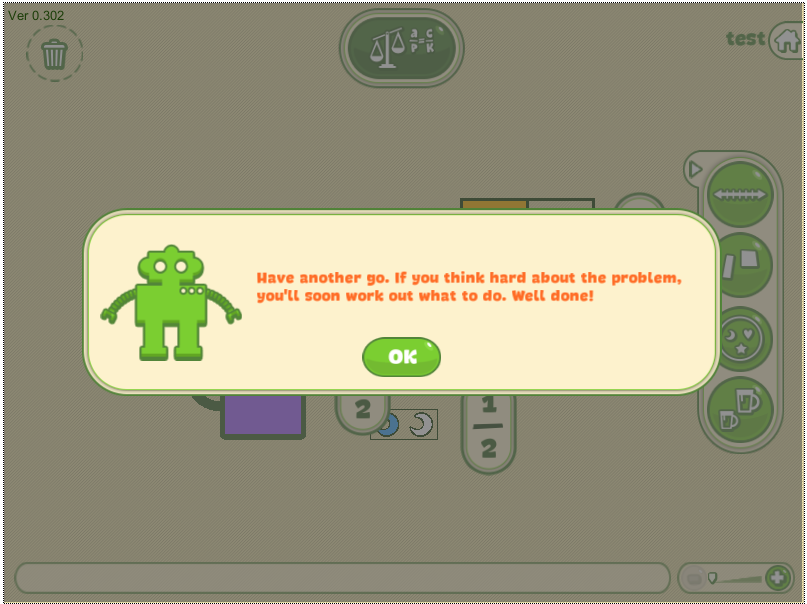How does iTalk2Learn enhance students’ learning experiences with feedback adaptation?
We at Birkbeck and IOE are very interested in finding out how feedback can be adapted in line with students’ affective states.
The task-independent support within the iTalk2Learn platform is able to tailor feedback types, as well as presenting feedback according to the affective state of the given student. It includes a Bayesian network trained with data from the project’s Wizard-of-Oz studies.
In those studies, we discovered that certain types of feedback are more effective for particular affective states. For example, instructive problem-solving feedback is more effective than other types of problem-solving feedback when students are confused. However, when students are frustrated, affect boosts or reflective prompts seem to be more effective then problem-solving support.

Instructive problem-solving feedback within the iTalk2Learn Platform
The way in which the feedback is presented to students is also important. When students are in flow, non-interruptive feedback is preferable. However, when student are confused or frustrated, high-interruptive feedback is more effective (since not viewing the feedback is likely to result in a negative affective state).
The input for the task-independent support is made up of the speech recognition software from Sail, as well as the Perceived Task Difficulty classifier from the University of Hildesheim, and interaction data from Fractions Lab.
Based on this data, the overall affective state of the given student is detected. This information is then used to adapt the feedback type and the presentation of the feedback in order to enhance the student’s learning experience.
The next stage of our research is to evaluate the task-independent support. We are aiming to visit schools for the evaluation at the end of May and in June.
As a consortium, we look forward to presenting and demonstrating our platform at the 17th International Conference on Artificial Intelligence in Education (AIED) in Madrid in June!


